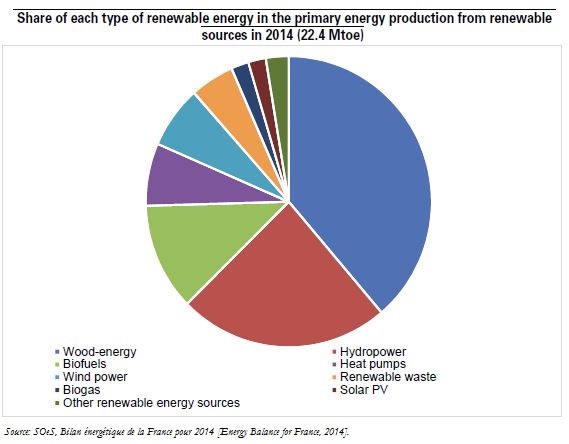Trésor-Economics No. 162 - Renewable energies: public policy challenges
Renewable energy sources (RES) are low-carbon energies available right within our borders, and as such can be of great value in addressing the challenges of climate change and energy security. In 2014, renewable energies accounted for 14.6% of France's gross final energy consumption. The French Energy Transition Act for Green Growth sets renewables targets of 23% and 32% as a share of gross final energy consumption by 2020 and 2030, respectively.
However, renewable energies are still more costly than conventional energies. A significant share of this additional cost is borne by energy consumers, particularly in the form of energy taxation and biofuels blending obligations. Public aid is also provided to support heat production from renewable energy sources (RES-H). The two most significant aids available today are the Energy Transition Tax Credit (CITE) and the Heat Fund.
Comparing the various types of renewable energies shows sharp disparities in terms of the cost of avoiding one tonne of CO2, which ranges from €59 to more than €500 for electricity production it follows that the cost of the energy transition is likely to vary significantly depending on which renewable energy sources are pushed to the fore.
The combustion of biomass for heat production appears to offer an economically efficient way to reduce CO2 emissions. Of the various renewable technologies available for the production of electricity (with the exception of hydropower, which was excluded from the scope of this study), onshore wind power is the least costly.
